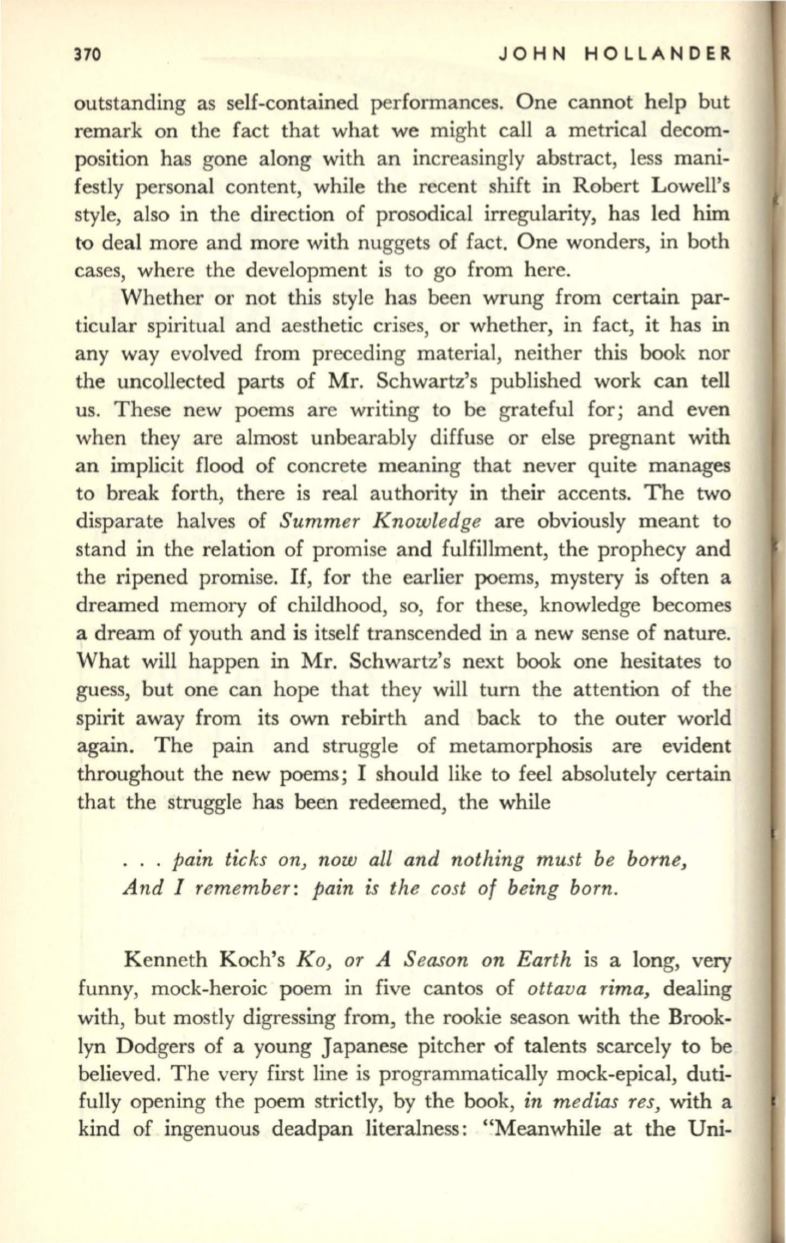
370
JOHN HOLLANDER
outstanding as self-contained performances. One cannot help but
remark on the fact that what we might call a metrical decom–
position has gone along with an increasingly abstract, less mani–
festly personal content, while the recent shift in Robert Lowell's
style, also in the direction of prosodical irregularity, has led him
to deal more and more with nuggets of fact. One wonders, in both
cases, where the development is to go from here.
Whether or not this style has been wrung from certain par–
ticular spiritual and aesthetic crises, or whether, in fact, it has in
any way evolved from preceding material, neither this book nor
the uncollected parts of Mr. Schwartz's published work can tell
us. These new poems are writing to be grateful for; and even
when they are almost unbearably diffuse or else pregnant with
an implicit flood of concrete meaning that never quite manages
to break forth, there is real authority in their accents. The two
disparate halves of
Summer Knowledge
are obviously meant to
stand in the relation of promise and fulfillment, the prophecy and
the ripened promise.
If,
for the earlier poems, mystery is often a
dreamed memory of childhood, so, for these, knowledge becomes
a dream of youth and is itself transcended in a new sense of nature.
What will happen in Mr. Schwartz's next book one hesitates to
guess, but one can hope that they will tum the attention of the
spirit away from its own rebirth and back to the outer world
again. The pain and struggle of metamorphosis are evident
throughout the new poems; I should like to feel absolutely certain
that the struggle has been redeemed, the while
...
pain ticks on, now all and nothing must be borne,
And I remember: pain
is
the cost of being born.
Kenneth Koch's
Ko, or A Season on Earth
is a long, very
funny, mock-heroic poem in five cantos of
ottava rima,
dealing
with, but mostly digressing from, the rookie season with the Brook–
lyn Dodgers of a young Japanese pitcher of talents scarcely to be
believed. The very first line is programmatically mock-epical, duti–
fully opening the poem strictly, by the book,
in medias res,
with a
kind of ingenuous deadpan literalness: "Meanwhile at the Uni-


